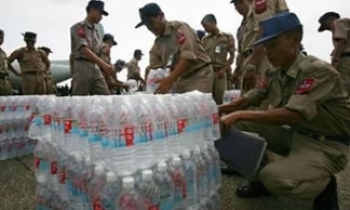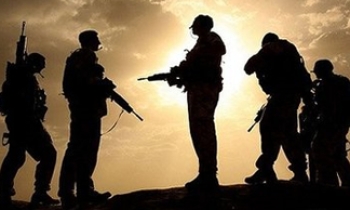Global pree freedom advocates have expressed alarm at the deteriorating conditions for journalists in Manipur.
The International Federation of Journalists (IFJ) has expressed alarm over the fact that an adverse situation for media workers in Manipur has turned markedly worse in the space of a mere week. By all credible accounts, this has happened on account both of militant groups operating in Manipur and retaliatory action by state authorities.
“We believe that both sides have chosen the wrong targetâ€, said IFJ Asia Pacific Director Jacqueline Park.
“Journalists must be free to make decisions about what to publish and what not to publish,†said CPJ Executive Director Joel Simon. “Instead of making conditions for journalists even more insecure, the government should focus on providing greater security for the press in Manipur to carry out their important work.â€
The Manipur government has banned publication of any propaganda of unlawful organisations or terrorist groups. Newspapers, books or printed documents would be forfeited if they contain news items which were considered to be subversive and a threat to the integrity of the country, the government decreed in an official order on August 2.
The state home department order, issued under section 95 of the Criminal Procedure Code (CrPC), 1973, came even as newspapers in Manipur were off the press after a gift-wrapped rocket-propelled grenade was delivered to a newspaper office in Imphal July 31. Journalists and editors had suspended publication of all dailies indefinitely and pulled news bulletins off local cable channels.
The grenade received by the Sangai Express came from a faction of the underground People’s Revolutionary Party of Kangleipak (PREPAK). The faction was trying to coerce the daily into dropping a statement issued by its rival faction. The print and electronic media resumed working August 5 after after the underground factions apologised, and gave their undertaking that such incidents would not be repeated in the future.
Under section 95 of the CrPC, the government is authorised to order by notification the forfeiture of any publication containing matter the publishing of which is punishable under sections 124A, 153A, 153B, 292, 293, or 295A of the Indian Penal Code (IPC). Once the notification is issued, any police officer can seize any copy of the publication in question, and under warrant issued by a magistrate may enter upon and search any premise for the same.
“These powers reserved for the police authorities would stifle any notion of media freedomâ€, said Park. “More alarming though, is the notion that the state authorities can legitimately respond to the intimidation of the media by armed insurgent groups, with threats of their ownâ€.
The Press Council of India, IFJ said, has established reasonable guidelines on reporting situations of armed conflict. Yet, the problems in Manipur are recognisably of a different character, since armed insurgency affects every sphere of life and society in the state.
“For this reason, a blanket ban on the coverage of militancy in the state would amount to a serious abridgment of the public right to knowâ€, said Park. The powers of search and seizure that the Manipur government has assumed, will seriously impede the professional community of journalists in the performance of their fundamental tasks.









